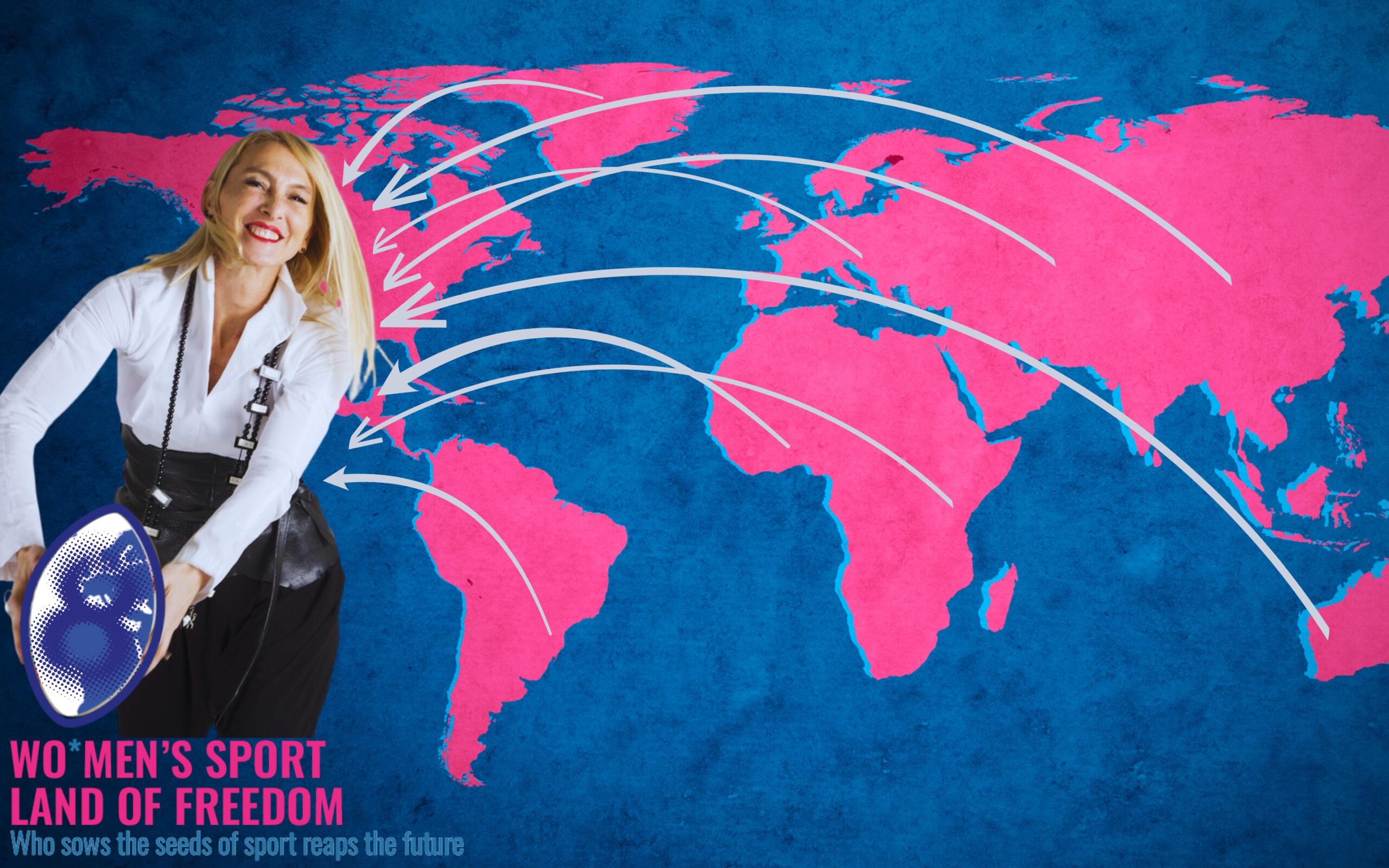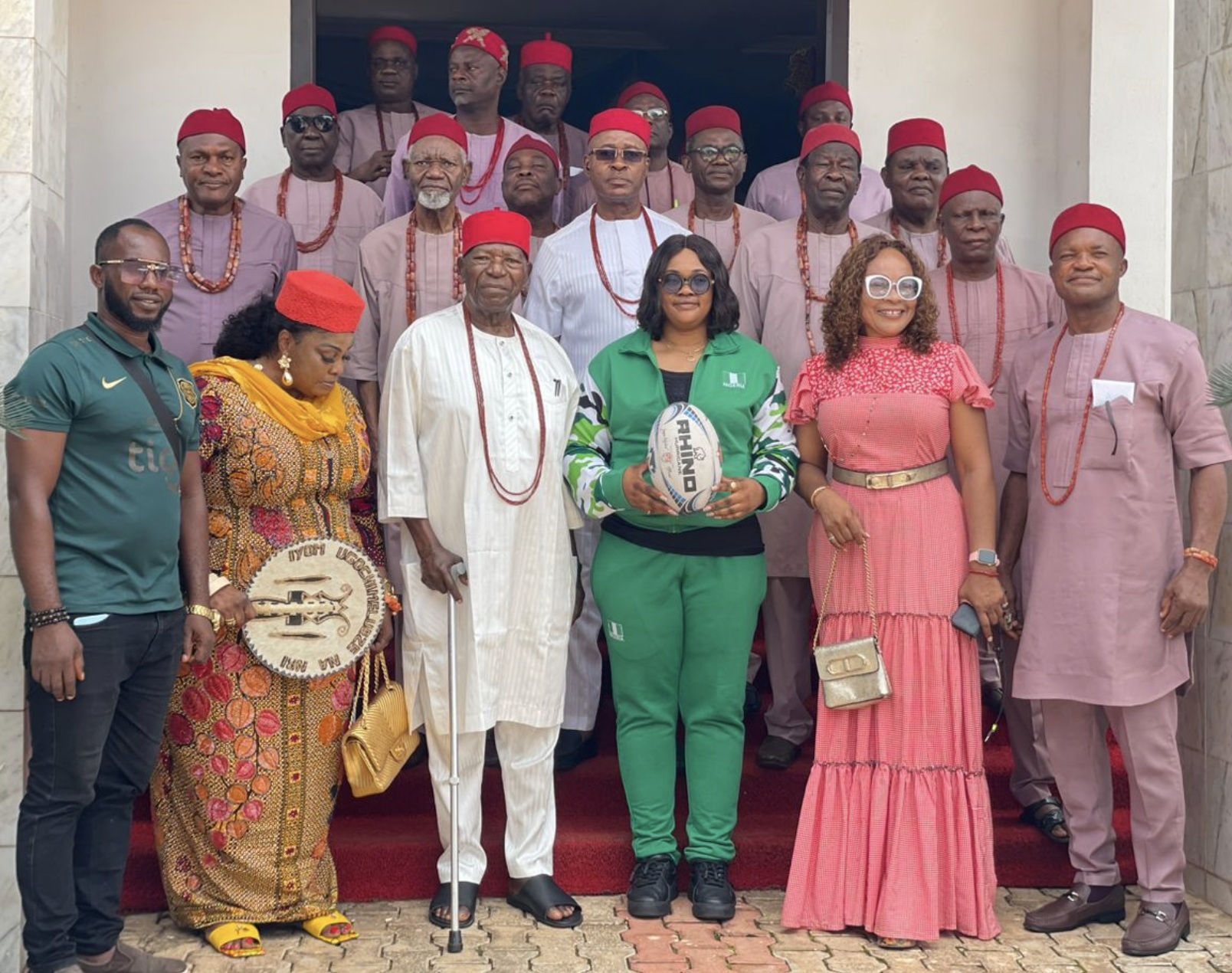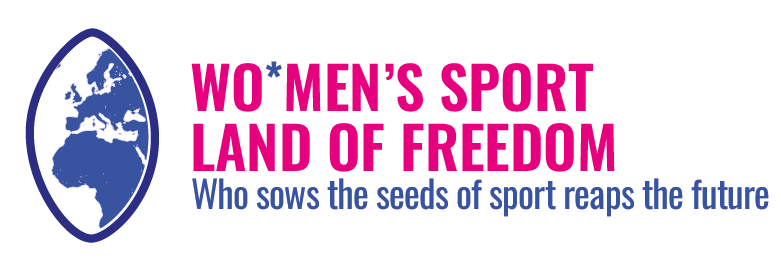
NIGERIA: TODAY I CONTRIBUTE TO THIS LAND OF FREEDOM BY DOING MY BEST IN THE WORLD OF RUGBY
“Today I contribute to this land of freedom by doing my best in the world of rugby”

Thanks to:
Princess Alban Ugonwaezeh Agugo
Board Member, Nigeria Rugby Football Federation Member, and member of the Nigeria Olympic Committee
- The history of the women’s movement in Nigeria
- Testimonials
- Reading time: 7 minutes
NIGERIA - Find out more
Nigeria is a federal republic in West Africa and the most populous country on the continent, with about 223 million inhabitants in 2023. The gender distribution is almost balanced (women make up about 50% of the population). Female representation in parliament is extremely low: only 3.9% of seats are occupied by women (February 2024), equivalent to 16 deputies in the House and just 4 senators out of 109. The female labor force participation rate is 80.7%, close to that of men (84.4%). However, challenges remain: about 43% of girls are married before the age of 18, and only 35.6% of women of reproductive age have access to modern family planning methods.
(Source: data.unwomen.org; World Bank Gender Data Portal; Nigerian Women’s Trust Fund; Al Jazeera; Global Voices; IPU; Wikipedia Demographics)
HISTORY OF THE COUNTRY
1. When did the women’s rugby movement start in your country and what is its history? How is rugby structured in your country?
Women’s rugby in Nigeria officially began in 2006. It was in that year that the sport first received national recognition. Progressively, Nigeria had the opportunity to represent the country for the first time internationally at the Women’s Africa Rugby Sevens Championship in 2009 in Accra, Ghana. Nigeria achieved an excellent result, finishing second behind Tunisia, the champions.
At that time, Nigeria had only four women’s clubs with about 60 players. Significant progress has since been made in promoting women’s rugby, as demonstrated by results in friendly matches against neighboring Ghana and at the 2024 Pan-African Games. Nigerian women have also gained leadership and administrative roles: in 2021, two Nigerian women were appointed to positions within African women’s rugby governance. Currently, three women sit on the board of the Nigeria Rugby Football Federation (NRFF).
Today, Nigeria has 24 senior clubs and over 70 junior teams, both in schools and communities. Princess Alban Ugonwaezeh Agugo has been appointed co-manager of the women’s national rugby team, coordinating the team’s affairs alongside the NRFF technical staff. Nigeria is also fortunate to be among the few countries supported by World Rugby to participate in the TI Rugby program, which engages young girls in rugby. Every quarter, rugby seminars, coaching, and refereeing courses are organized for stakeholders in women’s rugby.
2. Do you think playing rugby has a social impact for a woman in your country?
It is clear that rugby has a deep social impact on women in Nigeria. It provides them with a platform to challenge traditional gender roles and stereotypes. In Nigeria, the NRFF aims to promote gender equality, challenge social norms, and empower women and girls to reach their potential through rugby.
3. In your opinion, what can rugby give to women in your country?
Based on my opinion and experience, rugby can offer numerous benefits to women in Nigeria, and I consider myself a strong role model in this regard.
- Confidence: Rugby helps women build self-confidence, self-esteem, and body positivity.
- Education: Rugby empowers women in Nigeria by giving them access to educational programs, scholarships, and personal development opportunities. I am an example myself, as I am currently a World Rugby and Rugby Africa scholar.
- Community and Social Connections: Rugby helps Nigerian women build relationships and support networks.
- Enjoyment and Fun: Rugby provides women with a fun and enjoyable way to stay active, socialize, and express themselves.
- Health and Well-being: Rugby promotes both physical and mental health, reducing the risk of chronic diseases and improving overall well-being
JOURNEYS THROUGH RUGBY
1. When did you start playing rugby and how you discover it?
I started playing rugby in 2006. I discovered it while I was an active tennis player, through fellow athletes who played rugby.
2. What has rugby taught you that has impacted your daily life? Can you give me an example of when a rugby mindset was useful?
Rugby has had a great impact, especially in terms of teamwork. Before joining rugby, I was an individual athlete, but rugby taught me to work as part of a team. Even at work, rugby sharpened my mindset toward collective approaches and team spirit.
3. Can you give me 3 words that connect rugby to freedom?
Expression – Escape – Empowerment.
4. What does live in a land of freedom mean to you?
Living in a land of freedom means having the opportunity to thrive, grow, and contribute to society without being hindered by oppressive systems or ideologies. Today, I contribute to this land of freedom by doing my best in the world of rugby as: Board Member, Nigeria Rugby Football Federation (NRFF) / Chairman, Sponsorship and Marketing, NRFF / Co-Manager, National Women’s Team (Lady Stallions) / Member, Nigeria Olympic Committee (NOC) / Coordinator, Southeast Rugby Association / Member, Rugby Africa Women’s Welfare Participating and Advisory Committee / Chairman, Anambra State Rugby Association.
5. What object represents you and why? What is an aphorism that guides your life?
As a leader and mentor to many, a torch represents me, symbolizing light, guidance, and inspiration. As a sports administrator and educator, I strive to inspire and motivate others, providing guidance and support to help them achieve their goals and reach their full potential.
“Be a problem solver, not part of the problem to be solved”.
